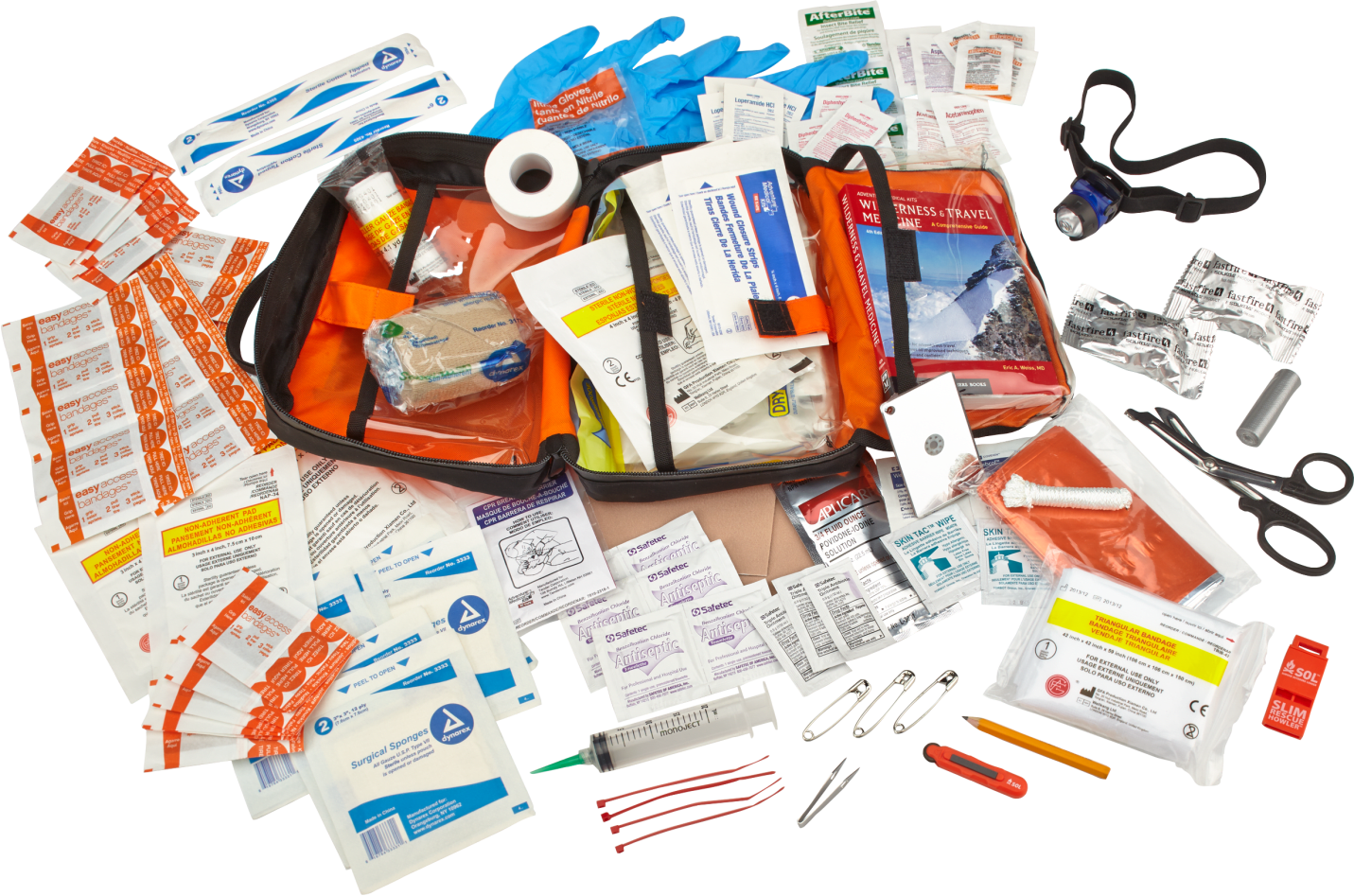
Camping can be a fun and adventurous activity, but it's important to be prepared for any potential injuries or emergencies that may arise. In this article, we will discuss essential first aid supplies for camping, how to prepare a first aid kit, common camping injuries and how to handle them, safety measures to prevent camping injuries, basic first aid procedures everyone should know, dealing with wilderness first aid situations, when to seek professional medical help, and tips for creating a camping safety plan.
Essential First Aid Supplies for Camping
 |
| Cabela's Guide First Aid Kit by Adventure Medical |
When packing for a camping trip, it's crucial to include essential first aid supplies. These may include adhesive bandages, gauze pads, adhesive tape, antiseptic wipes, tweezers, scissors, a digital thermometer, disposable gloves, a CPR mask, pain relievers, Benadryl and any necessary personal medications. It's also important to pack a first aid manual or guide to provide instructions in case of emergencies.
Preparing a First Aid Kit
To prepare a first aid kit for camping, gather all the necessary supplies and organize them in a waterproof container. Make sure to check the expiration dates of medications and replace any expired items. Additionally, consider the specific needs of your camping trip, such as the number of people and the duration of the trip, to ensure you have enough supplies.
Common Camping Injuries and How to Handle Them
While camping, it's common to encounter minor cuts and scrapes, sprains and strains, burns, insect bites and stings, as well as hypothermia and heat exhaustion. For minor cuts and scrapes, clean the wound with antiseptic wipes and apply an adhesive bandage. For sprains and strains, remember the RICE method: rest, ice, compression, and elevation. For burns, run cool water over the affected area and cover it with a clean, non-stick dressing. For insect bites and stings, remove any stingers if present, clean the area, and apply an antihistamine cream. For hypothermia and heat exhaustion, move the person to a warmer or cooler environment respectively, provide warm or cool fluids, and seek medical help if necessary.
Safety Measures to Prevent Camping Injuries
To prevent camping injuries, it's important to choose the right campsite, ensuring it's free from hazards such as steep cliffs or poisonous plants. Practice campfire safety by keeping fires contained and extinguishing them properly. Proper food handling and hygiene are essential to prevent foodborne illnesses. Stay hydrated by drinking plenty of water and avoid overexertion in extreme weather conditions. Knowing basic first aid procedures, such as CPR and rescue breathing, the Heimlich maneuver, and applying bandages and dressings can also help prevent further injuries.
Dealing with Wilderness First Aid Situations
In wilderness first aid situations, it's important to stay calm and assess the situation. For fractures and dislocations, immobilize the injured area and seek professional medical help. For head injuries, monitor the person for signs of concussion and seek immediate medical attention if necessary. Allergic reactions to insect bites or food require prompt treatment with antihistamines or epinephrine if available. In the case of snake bites, keep the person calm, immobilize the affected limb, and seek immediate medical help.
When to Seek Professional Medical Help
While many camping injuries can be treated with basic first aid, there are certain situations where professional medical help is necessary. Seek medical help if the injury is severe, there is excessive bleeding, difficulty breathing, loss of consciousness, or signs of infection. It's always better to err on the side of caution and seek professional medical help when in doubt.
Tips for Creating a Camping Safety Plan
Creating a camping safety plan is essential to ensure a safe and enjoyable trip. One very easy step can be taken before you go out: leave a note with a roommate or loved one detailing where you are going and when you should return. Sharing your itinerary with someone can be incredibly helpful to search and rescue teams, should their services be needed. Additionally, knowing the location of the nearest medical facilities and having emergency contact numbers readily available is crucial. It's also important to educate yourself and your camping companions on basic first aid procedures and wilderness safety.
Camping can be a wonderful experience, but it's crucial to be prepared for any potential injuries or emergencies. By having essential first aid supplies, preparing a first aid kit, knowing how to handle common camping injuries, practicing safety measures, learning basic first aid procedures, and creating a camping safety plan, you can ensure a safe and enjoyable camping trip for everyone involved.
FAQs (Frequently Asked Questions)
-
Can I use a regular home first aid kit for camping?
Yes, but make sure to add specific items like insect bite relief and adhesive bandages suitable for outdoor activities.
-
How often should I check and restock my camping first aid kit?
Check before every trip and replace used or expired items.
-
Is it necessary to learn CPR for camping?
While not mandatory, learning CPR can be life-saving in emergency situations.
-
Are there any plants I should be cautious of while camping?
Yes, familiarize yourself with poisonous plants like poison ivy and oak to avoid contact.
-
What should I do if someone gets a severe sunburn during camping?
Move them to shade, apply aloe vera if available, and ensure they stay hydrated. If the burn is severe, seek medical help.
- 255 views

